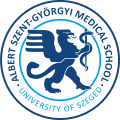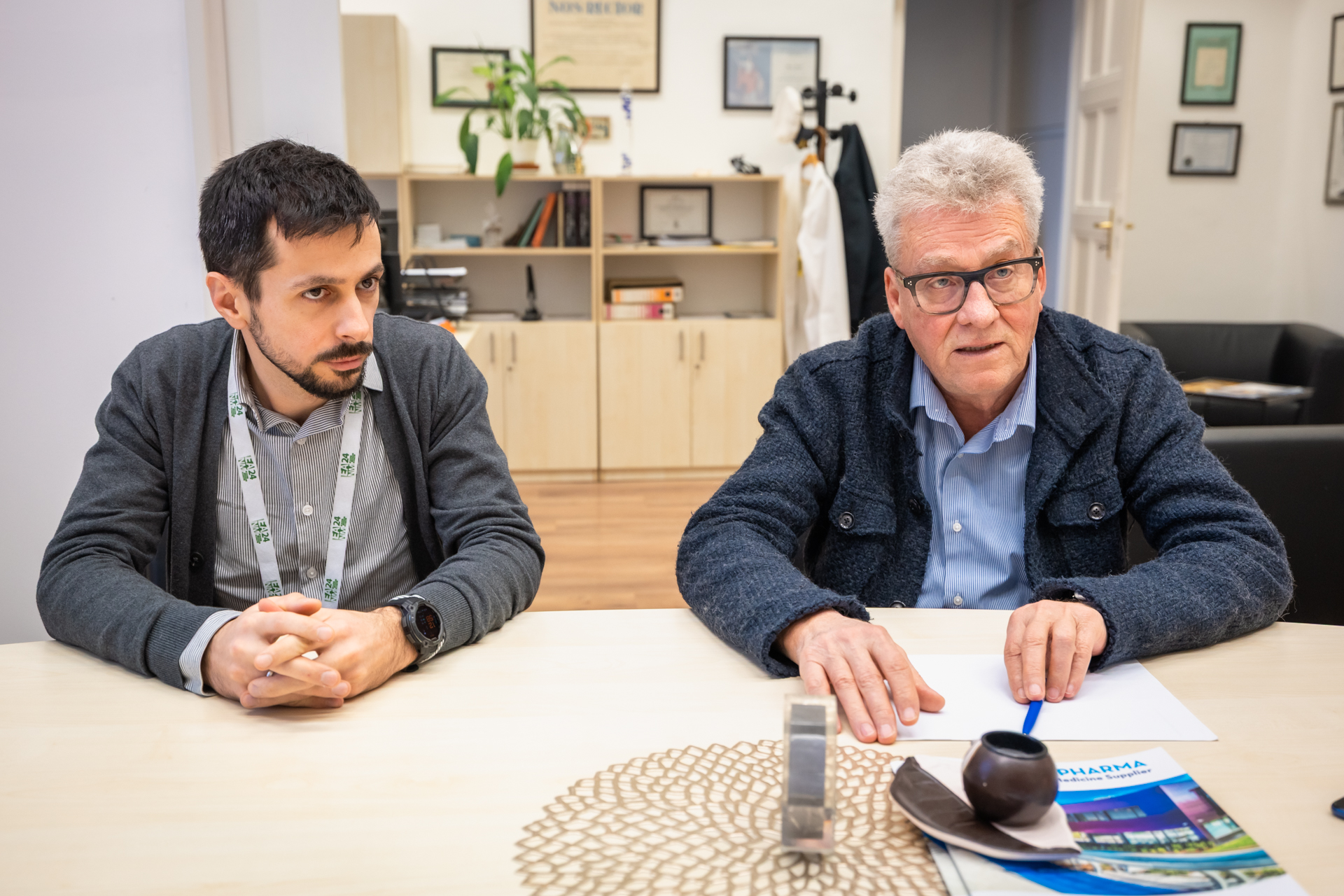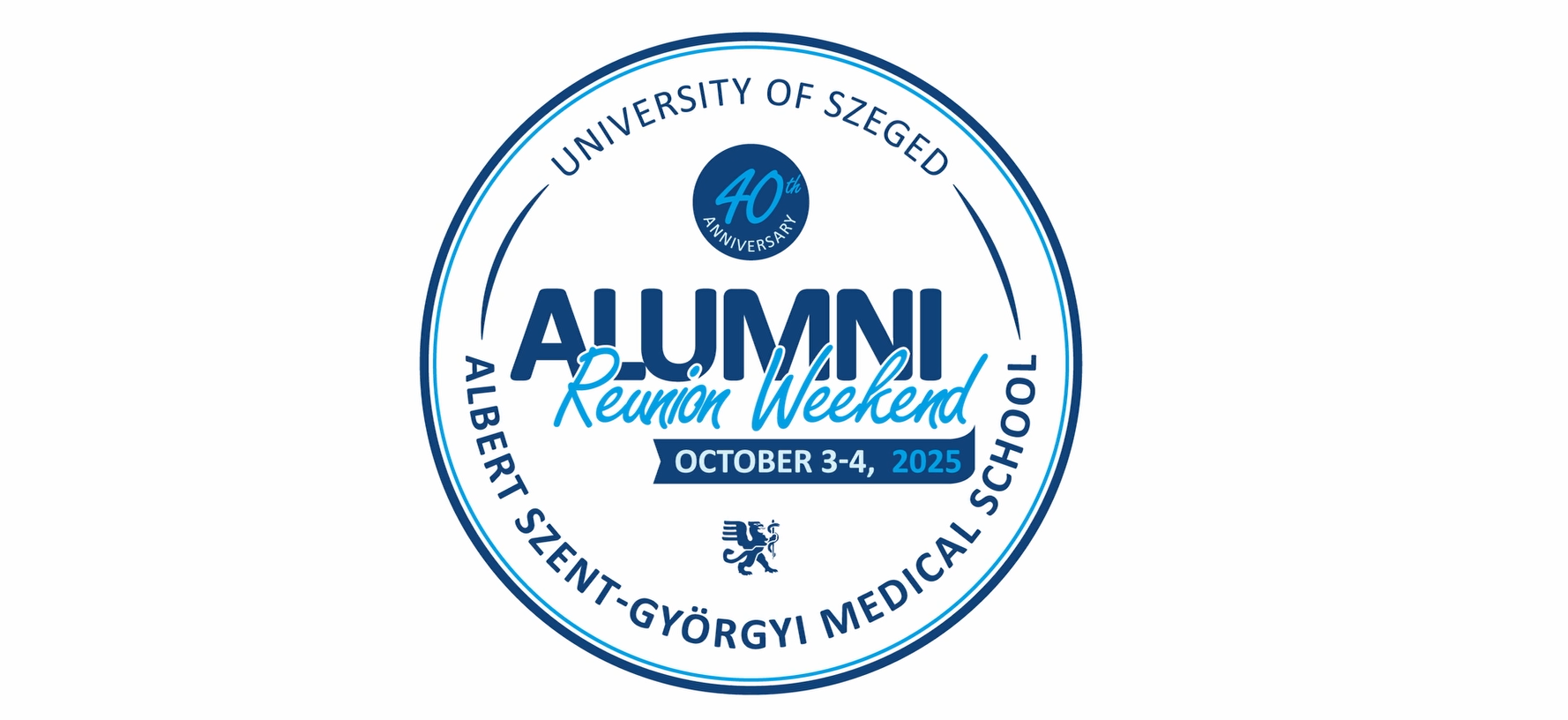University of Szeged
Albert Szent-Györgyi Medical School
Foreign Students' Secretariat
Your Education. Our Mission.

’All you need to pass an exam is knowledge’ – Tribute to Dr. István Karády, founder of the Department of Pathophysiology at the Albert Szent-Györgyi Medical School
A scientific meeting was organised in memory of Dr. István Karády (1904-1974), Professor of Pathophysiology at the Department of Pathophysiology.
The memorial plaque of the Professor, who founded the Department was unveiled by Prof. György Lázár, Dean of the Medical School and Prof. Zoltán Rakonczay, current Head of Department. The meeting featured presentations on the current research programmes of the department in the fields of the neuroendocrine system, acute pancreatitis and cardiovascular disorders.
Professor Karády was invited to establish the Department of Pathophysiology at the then Medical University of Szeged, the predecessor of the Albert Szent-Györgyi Medical School in 1951. He conducted research and taught at the department until his death in 1974, launched a whole series of later distinguished professors in their careers, and his notes on pathophysiology, his engaging lecturing style and his anecdotal exam rigour long remained legendary among the next generations of medical students.
’Professor Karády belonged to a special group of physician-scientists,’said Prof. György Lázár, ‘who played a decisive role in the development of medical studies in Szeged. He created a new school by bringing a logical, consistent clinical approach to the teaching of pathophysiology. Students who completed his course successfully had almost mastered the subject of internal medicine as well’.
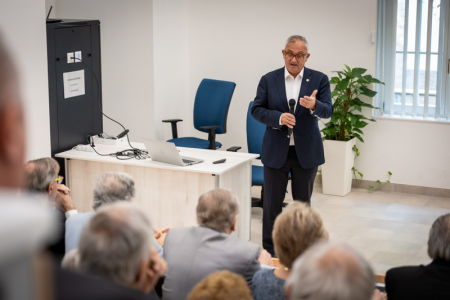
Between 1937 and 1939, Prof. Karády spent two years as a fellow of the Rockefeller and McGill Foundation at McGill University in Montreal, where he met Professor János Selye, who conceptualised the stress theory and the two of them published several papers together in the following years. Dr István Karády was a guest researcher at the famous Mayo Clinic in the USA between 1939 and 1942, a fellow of the French CNRS (French National Centre for Scientific Research) in 1957, a Rockefeller Fellow in London in 1958, a fellow of the Polish Academy of Sciences in 1961, a visiting researcher at the Wellcome Trust in London again in 1964-65, and a visiting professor at the University of Vienna in 1967-68.
Dr István Karády's main research interests were histamine, shock and allergy. He studied the processes of inflammation and adaptation and was the first to identify resistin, the body's natural defence mechanism against circulatory failure. In addition to numerous scientific publications he published articles in Nature in 1945 and 1957.
After Professor Karády's unexpected death, the department was taken over by Dr. György Lázár Senior (1974-75), Dr. Gyula Telegdy (1975-2000), Dr. Gyula Szabó (2000-2019), and in 2019 Dr. Zoltán Rakonczay was appointed head of the now 73-year-old department.
In the next presentation, Dr. Árpád Gecse reminisced about István Karády, himself being a student and later a colleague of the professor. He recalled the large audience of Karády's lectures, which were clinically oriented, and that sometimes it was impossible to find an empty seat.
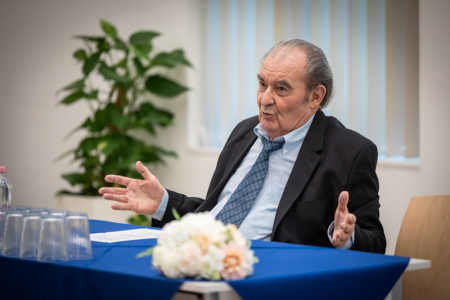
Dr. Árpád Gecse was in London with Dr. István Karády on a Wellcome Trust scholarship in 1964-65. He recalled that in Geoffrey B. West's laboratory they had studied the curiosity that 25% of rats did not release histamine at all and that these animals were more tolerant towards shock.
Prof. Dr. Zoltán Rakonczay was asked to place pathophysiology among other disciplines: ’In medical education, pathophysiology provides the transition between basic and clinical knowledge,’ he said, ’This discipline investigates the pathophysiological processes underlying clinical pathologies, essentially the mechanisms how diseases develop. Pathophysiology builds on anatomy, biochemistry and especially physiology to address the causes and symptoms of disease groups, but does not cover, say, diagnostics, which students will learn in later years, or therapy, which they will learn mainly in the Department of Pharmacology or in clinical courses. This subject covers a whole range of diseases, starting with inflammation, which is the basis of many diseases, immunology, nutritional disorders, endocrine glands, cardiovascular medicine, the central nervous system, the haematopoietic system, the kidneys, the various pathologies of pulmonary medicine, the gastrointestinal tract, the thermoregulatory system, the salt-water balance, acid-base imbalances, in short, almost all the topics related to internal medicine.’
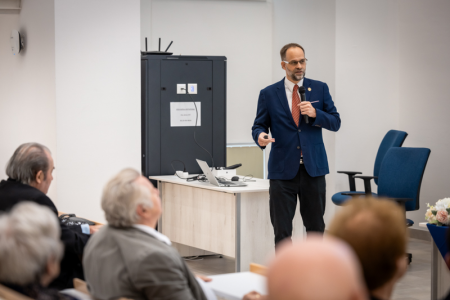
In the second part of the commemorative session, presentations were given on the ongoing research programmes at the department. The institute has three main research programmes. The neuroendocrine programme, led by Dr Zsolt Bagosi, focuses on neuropeptides in the central nervous system. The gastrointestinal research group, led by Prof. Zoltán Rakonczay and Dr Lóránd Kiss, mainly investigates the pathophysiology of the pancreas, while cardiovascular researchers, Dr Márta Sárközi and Dr István Koncz work on heart failure and arrhythmias, respectively.
Zsolt Bagosi, PhD, spoke about the effects of the hormone urocortin on stress, anxiety and depression, as well as on nicotine and alcohol addiction. Dr. Miklós Jászberényi's presentation focused on the appetite stimulating peptide orexin, which has also been shown to have an effect on anxiety and stress. The presentation also detailed the link between eating disorders and central nervous system disorders. Dr. Krisztina Csabafi's lecture focused on another family of peptides, kisspeptides, which are key endogenous activators of the reproductive hormonal axis with additional emerging roles in sexual and emotional behaviour. Dr. Lóránd Kiss talked about the department's research on pancreatitis. Dr. István Koncz spoke about the development of cardiac rhythm abnormalities, and discussed the effects of the neurotransmitter molecule acetylcholine. Dr. Márta Sárközy analysed the adverse effects of radiotherapy and chemotherapy on the myocardium causing hypertrophy, and the effects of substances released into the body during renal failure causing heart failure.

